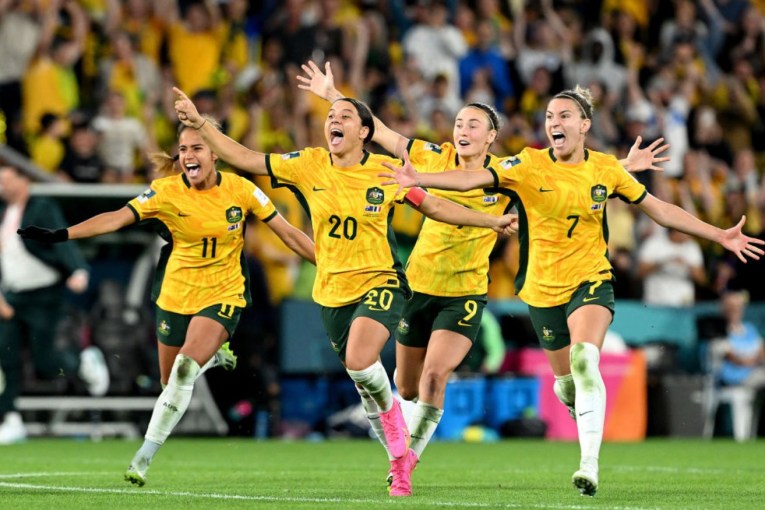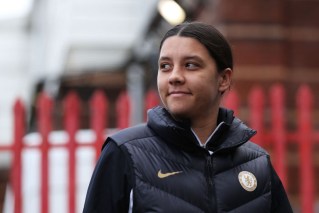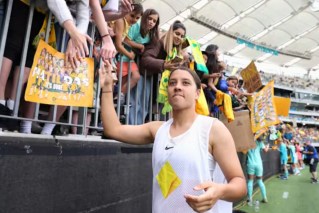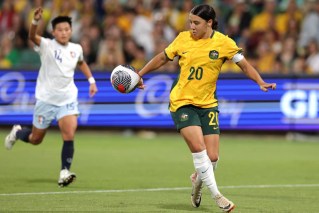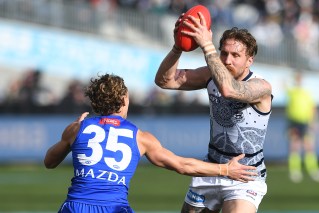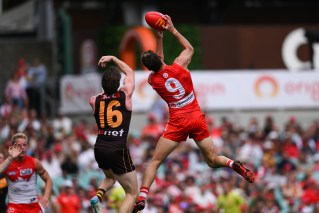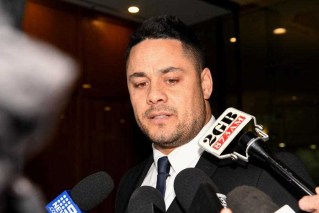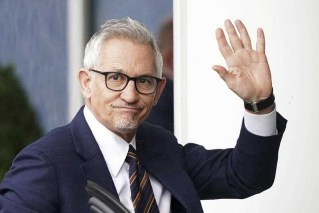Golden Generation of Socceroos tries to shape football’s future in Australia
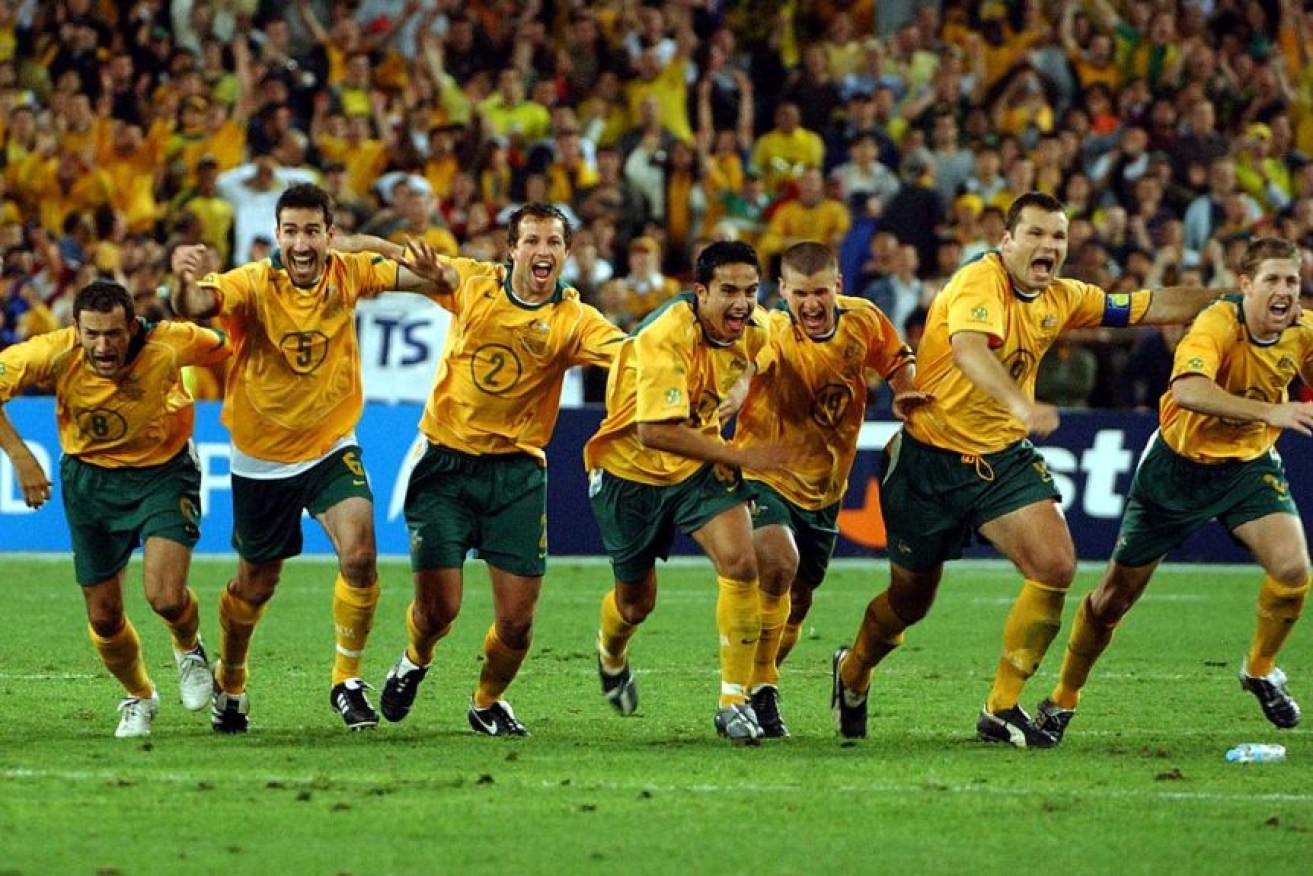
Australian football's "Golden Generation" hopes to inspire change in the modern game. Photo: AAP
Some of the most successful Socceroos ever have reunited to push for structural change in Australian football, amid growing concern for the direction of the game and a stagnating A-League product.
The Golden Generation working group features a number of players from the 2006 World Cup campaign in which Australia reached the second round.
Led by former Socceroos captain Craig Moore, the group includes John Aloisi, Scott Chipperfield, Vince Grella, Zeljko Kalac, Lucas Neill, Josip Skoko, Mark Viduka and Luke Wilkshire.
“I think we are speaking on behalf of the majority of Australian football people,” Moore said.
“We are a group that have come through the systems within Australia over the last 20 or 30 years and we are extremely passionate.”
The players are hoping to leverage the reputation they had on the field to draw attention to a number of issues off it, including what they say is a fundamental need to move the A-League to winter.
Since it was launched, the A-League has been staged between October to May.
“I think [moving to winter] makes a lot of sense,” said Moore.
“The majority of the football in this country is played from March to September so I think the adjustment wouldn’t be a crazy one, but it would be something that probably suits us.”

Extremely hot summer days have been a long been a problem for the A-League. Photo: AAP
According to Moore, the shift to winter would also enable the game to better facilitate promotion and relegation between a national second division, which has been widely recognised as another key part of the game’s future success.
“It’s just trying to accelerate that discussion a little bit so that we can start to see some changes that really can kick-start the game in the country,” said Moore.
Given the main transfer window in Europe is in July and August, the group also believes such a move would ensure clubs are more adequately compensated when talent is recruited overseas.
“If we had that winter season, then our players are protected,” he said.
“When those European clubs come knocking to invest and buy our players, again the money is coming back into this country.
“The 2022 World Cup is also going to be in Qatar, in the back end of the year in November. It just makes a lot of sense for so many reasons, that we align football in the country.”
When it comes to re-booting the #ALeague, we’d like to see:
(1) the competition expanded to 16 teams by 2022
(2) the salary cap eliminated
(3) no more than 5 visa players
(4) all teams to play NPL1 to U-23
(5) a transfer & compensation system.https://t.co/Bz9E3CtZ02 pic.twitter.com/bqhL4yvemC— The Golden Generation (@GGener8tion) May 22, 2020
Revised schedule a common view
Former Canberra United W-League coach Heather Garriock agrees that moving Australia’s elite competitions could help unlock the game’s potential.
“We continually talk about competing with the bigger sports like NRL, AFL, rugby union — well, unfortunately, our game is played in winter and we should be playing in winter,” Garriock said.

Former Canberra United W-League coach Heather Garriock agrees the season should move to winter. Photo: Supplied/Canberra United Football Club Facebook
Foxtel is currently in the middle of a six-year broadcast rights deal worth around $57 million a year.
Given its current partnership with the NRL, it seems unlikely that the game’s current broadcast partner would be overly supportive of shifting the timing of the A-League.
The pay-television broadcaster still lodged its most recent quarterly payment despite the fact that there is still six rounds of the 2019/20 A-League season left to be completed.
Part of the Golden Generation’s pitch is for the game to own more of its content, in order to give it more flexibility to make its own scheduling decisions.
“We would love to be able to see in the future that the game has got some stake or some ownership of its content, of its game, of its television rights,” Moore said.
Not the only voice
In late April, the FFA announced it would create a panel called the Starting XI to provide input to discuss and debate the growth and development of the game in Australia.
Garriock was named to be part of that group, which met for the first time last Wednesday.
Other members include Viduka, Skoko, Ron Smith, Mark Bosnich, Paul Okon, Frank Farina, Clare Polkinghorne, Vicki Linton, Joey Peters and Connie Selby.
Moore hopes the issues raised by the Golden Generation can complement the discussion being had by the Starting XI on a more formal basis within Football Federation Australia.
“I think it is something that is complementary and can work well but with any kind of discussion, the confidentiality side of it is really important.”
Viduka, Skoko and Smith each hold a position on both working groups.
“For me, what the Golden Generation is looking to do is really to support the outcomes that we know the game is trying to achieve,” Moore said.
“We are a group that has huge experience and, more importantly, is thinking about the future of the game, and we have been listening.”
Garriock hopes the Starting XI can come up with a way to improve the production line of players in Australia, for both the men’s and women’s game.
“I think the current crop of players, the Matildas, are almost a band-aid for what’s coming through,” she said.
And she isn’t concerned about the presence of other voices having their say when it comes to the direction of the sport in Australia, having signed off the most recent Starting XI video call with a spring in her step.
“When you have got a CEO that has come into Football Federation Australia that actually has gone through our pathway here in Australia in James Johnson and played in a youth national team and has worked for many big organisations including FIFA and the City Group, then he gets it,” she said.
“Football is at the heart of every discussion.”.
-ABC
